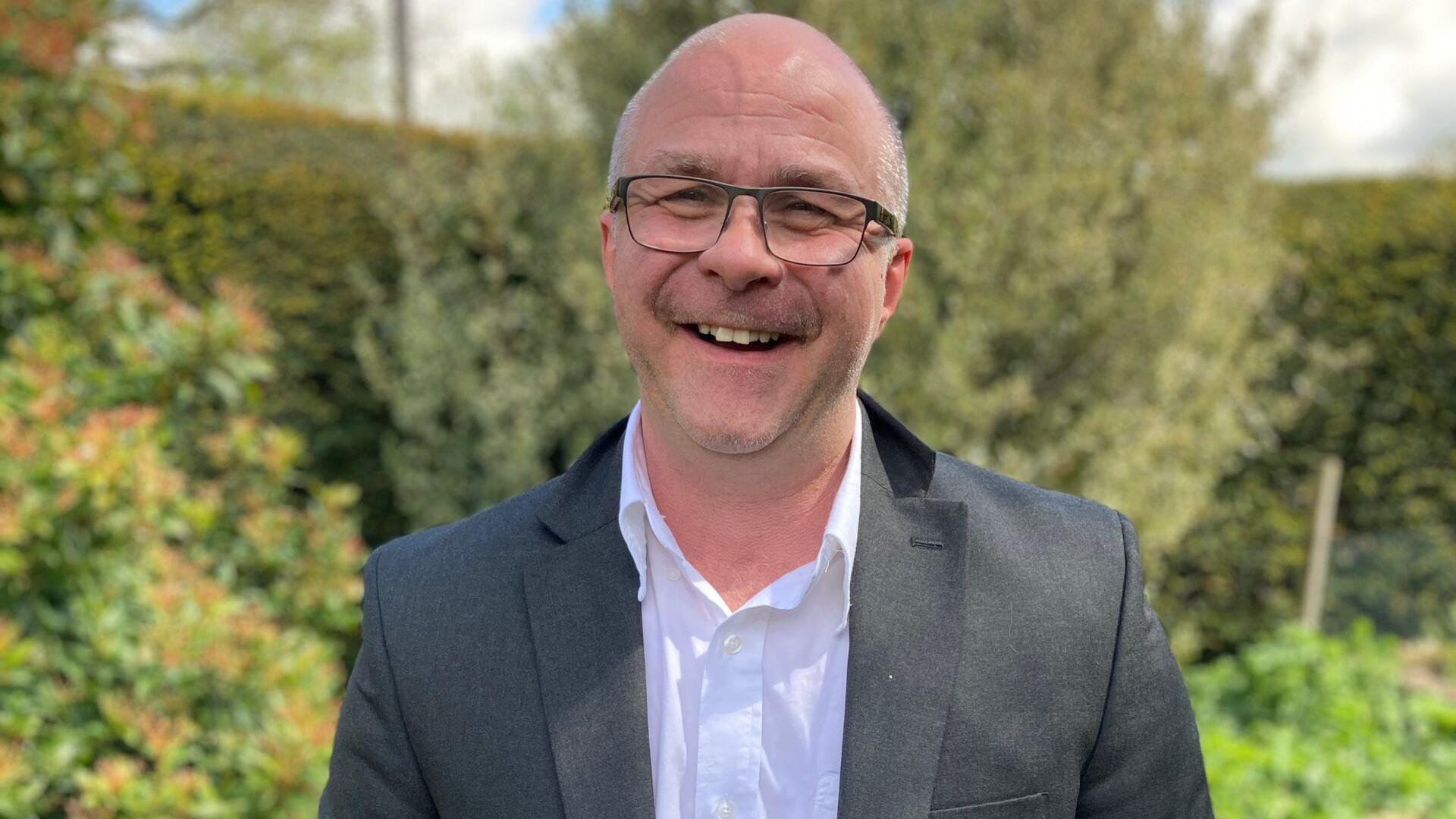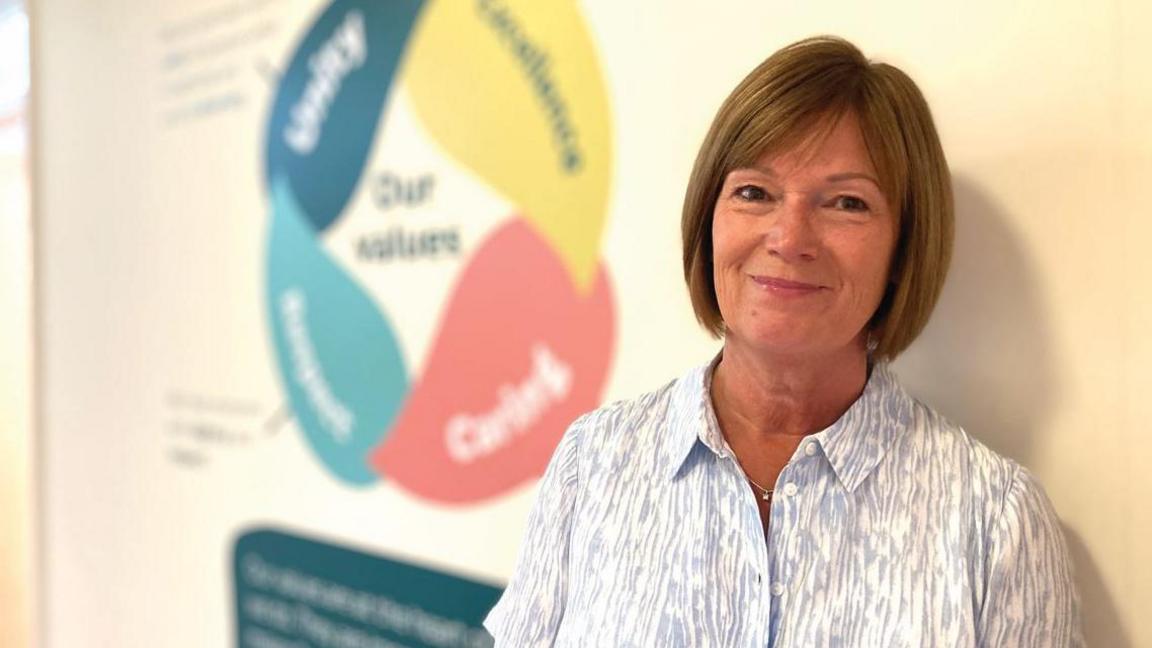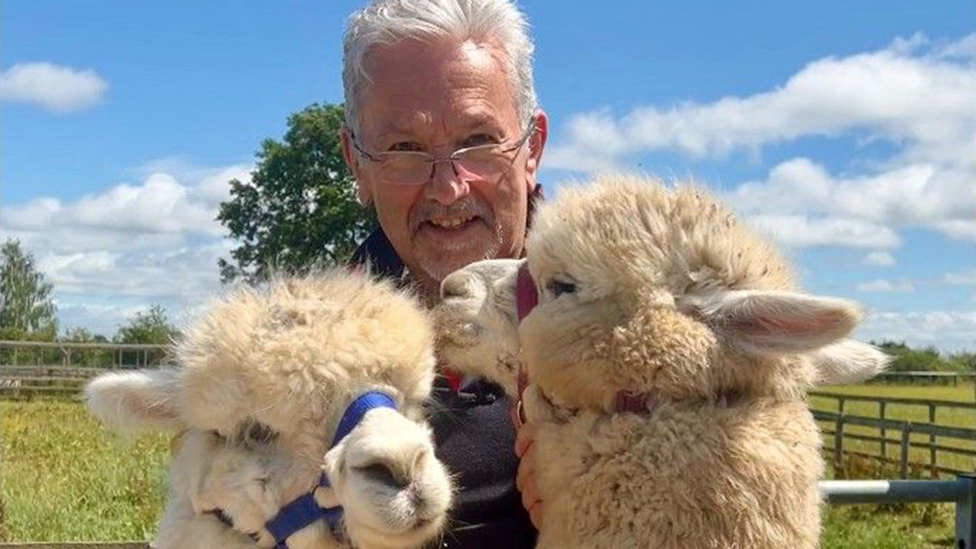Global ambitions for hospice's care model

Prof Derek Willis from the hospice worked on the model for eight years with other healthcare colleagues
- Published
A Shropshire hospice which says its new model of palliative care is being used across the UK has shared its global ambitions for the approach.
Severn Hospice worked with the NHS to create an approach for adults with neuromuscular conditions, saying there was a gap in care where patients with advanced conditions were not being routinely referred to hospice services.
The Oswestry Model uses a "traffic light system" to help neuromuscular teams identify key stages in a patient's journey in which hospice involvement would improve their quality of life.
"There simply wasn't a standard for providing palliative care to this group of patients," said Prof Derek Willis, Severn Hospice medical director.
He said the amber stage of the model was about advance care planning and having important conversations about the patient's wishes, while the red stage was recognising that the patient would need specialist support for managing symptoms.
The hospice worked with the neuromuscular centre at the Robert Jones and Agnes Hunt Orthopaedic Hospital (RJAH) in Gobowen.
It said the model addressed a "previously unmet need" in how adults with conditions such as Duchenne muscular dystrophy are supported by palliative care services.
Duchenne muscular dystrophy, external causes progressive muscle weakness and wasting, mainly affecting boys, starting in early childhood, leading to a loss of mobility.
"Together with colleagues at RJAH, we wanted to change that to make sure people weren't falling through the cracks," Prof Willis said.
'It may shape palliative care globally'
Prof Willis worked with his wife Prof Tracey Willis who is a neuromuscular specialist at RJAH, and other colleagues, during a period of eight years to develop the framework for how and when palliative care should be offered.
The hospice said the model had been adopted nationally, and would be introduced at the World Muscle Society's annual conference in October.
It is hoped it could be adopted globally.
"Something developed here in Shropshire may help shape palliative care for people with neuromuscular conditions around the world," said Prof Willis.
"More importantly, it means that no matter where you live, you can expect the same standard of care."
Get in touch
Tell us which stories we should cover in Shropshire
Follow BBC Shropshire on BBC Sounds, Facebook, external, X, external and Instagram, external.
- Published28 April

- Published28 July
